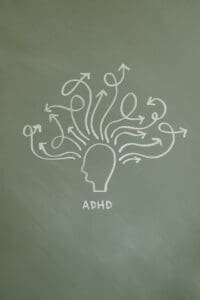Dogs are scavengers by nature. They love to eat, and they will eat just about anything. However, that also means that dogs can eat things they shouldn’t. The right food keeps the dog energetic, happy, alert, and strong. The wrong kind of food can adversely affect a dog’s health. It is also important to understand what your dog cannot eat, as certain foods threaten their overall health, which is where this article comes in. We’ll cover everything you need to know about what dogs can and cannot eat so you can rest easy knowing your furry friend will live a long and happy life.
Why Food Safety Is Important
Food safety is extremely important for dogs. If you don’t pay attention to what food you are feeding your dog, you risk putting them at risk for illness. Some foods can be toxic to dogs, and others can cause allergic reactions or gastrointestinal issues. It is important to pay attention to what your dog is eating and keep track of any changes in their health. If you notice something out of the ordinary, such as decreased appetite, vomiting, diarrhea, decreased energy, discolored stool, or bad breath, it could be a sign that your dog’s eaten something they shouldn’t have. In this case, you will need to take them to a vet immediately.
Top 3 Foods Dogs Can’t Eat
Many foods that humans can eat, dogs cannot. Even if your dog has the strongest stomach in the world, there are certain things that he should not eat. Below are the top three foods that dogs can’t eat.
Chocolate
When you think about what dogs can’t eat, the first thing that comes to mind is most likely chocolate. Dogs can’t eat chocolate because it contains chemicals called methylxanthines. Methylxanthines are toxic to dogs as it causes the metabolic process in your dog to stop. This can cause serious health issues like vomiting, heart arrhythmia, seizures, and even death. Even small amounts of chocolate can cause serious issues in dogs, so it is best to avoid feeding your dog any chocolate treats. If your dog ingests chocolate, take them to your nearest vet immediately.
Almonds
Another common food that dogs cannot eat is almonds. While almonds are not toxic, they can be very dangerous to dogs because they can lead to choking and even tearing their windpipes if they don’t chew them properly. Additionally, you should also avoid giving your dog salted almonds if they have a heart condition, as salted almonds can cause an increase in water retention.
Garlic
Another type of food that dogs cannot eat is garlic, which is in the Allium family. However, while you should not feed your dog any Allium plants, including onions, leeks, and chives, garlic is more toxic than the rest of this family of plants. Garlic poisoning can lead to anemia, which can cause your dog to develop side effects such as weakness, pale gums, and an elevated heart rate. Furthermore, garlic poisoning, like all allium plant poisoning, can have a delayed effect, which means your dog will need to be monitored for a few days following a suspected poisoning. If you’re concerned about your dog having ingested garlic or any other Allium family plants, take them to the vet for an assessment.
Top 3 Foods Dogs Can Eat

While plenty of foods are toxic to dogs, they can also have a lot. We’ll cover the top three foods your furry friend can eat below that make excellent treats.
Cheese
Cheese is one of the best treats that you can give your dog. It is not only delicious, but it is also rich in calcium, protein, and other essential vitamins and minerals. Just be sure to give your dog this treat in moderation.
Avocados
You may have asked the question, can dogs eat avocados? The short answer is yes; avocados offer plenty of vitamins, minerals, and healthy fats that dogs need. Just like with other foods, it is important to feed your dog avocados in moderation. Also, do not give your dog the skin or the avocado pit because both contain high levels of toxic compounds.
Eggs
Eggs are an excellent source of protein for dogs. They are also rich in vitamins and minerals that can help support your dog’s overall health. However, be sure to feed your dog only cooked eggs since raw eggs may contain Salmonella bacteria.
Final Thoughts
Dogs are wonderful creatures, and they are great friends to have. The best way to keep them happy and healthy is to provide them with proper care and nutrition. Dogs can eat many of the same foods humans eat, but certain foods threaten their overall health. By reading this article, you should know what dogs can and cannot eat based on their nutritional needs. You will be able to keep your dog safe and happy for many years to come.
Featured Image by StockSnap from Pixabay










